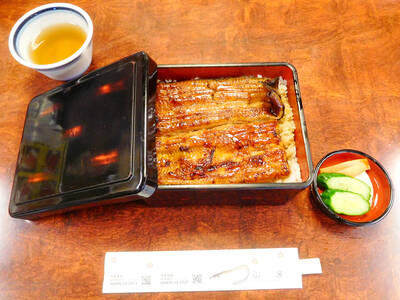一般人的誤用actually是在答非所問的情況下用actually,或是在每句話中有如發語詞一般的都加上actually,這會使這個字的強度或你所述事情的可信度打折扣!
「actually」這個字一般人用在表示「事實上」、「實際上」或是「確實上」,或許是它被使用的太浮濫而成為口頭禪,在談話的過程中動不動就來一句「actually」,使得它被認為「為什麼要加個actually?」;在經驗老道的聽者心中會問「你是不是在隱瞞什麼?」,甚至是「你有沒有可能騙人?」
職場專家(註)舉了一例:

Photo courtesy of Chun Shin / 照片: Chun Shin
問題是「How many customers are using the platform?(有多少顧客使用這個平台)」,當答案是「We actually have over 100 companies.(我們實際上有超過100家公司。)」的時候,職場老手會在心中產生一個疑問:「為什麼你要加個actually?」
what really happened 實際發生的事
話說actually來自actual,它們的字根是「act」,是「做、動作」,既是做了,表示「發生、存在」,所以它是指實際發生的事(what really happened),或是真有的事(what is really true)。一般人的誤用actually是在答非所問的情況下用actually,或是在每句話中有如發語詞一般的都加上actually,這會使這個字的強度或你所述事情的可信度打折扣。
例如,當一位人事經理用英語面試新人時問:「What is your career plan?(你的職涯規劃是什麼?)」,應徵者回答:「Actually, I hope to learn in the marketing department.(我希望在行銷部裡學習。)」此新人尚未受聘,actually不會是指實際發生的事,所以他的actually 只是發語詞或口頭禪,稱得上是贅語。或許回答「I’ve just graduated from college, so I hope to learn in the marketing department.(我大學剛畢業,希望多學習。)」比較務實。
一如職場專家所言,要不就是從此少用actually,不然就是把它用對,例如說「I need to talk to the manager that actually made the decision.」,是指「我需要與確實做此決策的經理談一談。」或是用在補充你認為是事實的情況,例如「She is actually very helpful in this construction project.」,意思是「在這個建案上,她事實上幫了很大的忙。」
in fact; in actual fact 事實上
「actually」與我們熟知的「in fact」(事實上),用法非常接近。有趣的是,「in fact」原本的說法是「in actual fact」。fact是「事實」,所以「actually」與「in fact」出現的情境多半都是在強調事實,或是釐清真正的實際狀況。
例如:
Many customers viewed cellphones and tablet computers in the same category as 3C products, but actually they are quite different.
(許多消費者把智慧型手機與平板電腦視為相同範疇的3C 產品,但是事實上它們相當不同。)
Traveling by airplane is becoming increasingly safe these days. In fact, there are fewer accidents than 20 years ago.
(搭機旅行如今是變得越來越安全,事實上,飛安事故件數比起 20 年前少了很多。)
以上兩句之中,actually 與in fact 分別帶出事實敘述以補強前句的論點。
【多益模擬試題】
「actually」被用到職場專家都喊停,可見它常用的程度。既然在國際職場常用,當然也就是多益測驗的入題材料,還可能是在聽力部分。請看以下《多益測驗官方全真試題指南》例題:
Why didn’t you tell us you studied accounting?
接著另一人會回答出三個選項:
(A) I never actually finished my degree.
(B) The accountant is behind schedule.
(C) No, studying in the library.
【解析】
本題的正確答案是(A)。本題的解題關鍵之一在於你有沒有聽到與原因有關的Why。答案(A)是告知原因,所以為正解。其中的actually即為我們本文討論的「事實上、實際上、確實上」,與真實發生的事實有關。
答案(B)(C)是答非所問,但重要的是(B)中的accountant與(C)中的studying與題目句的accounting與studied是「相似混淆音」,是誤導聽力受測者的干擾答案。
SOURCE: https://www.englishok.com.tw/toeic/toeic-issue/office-rule-do-not-use-the-word-in-english
文章由TOEIC Program Taiwan · Chun Shin提供:
www.facebook.com/ToeicProgramTaiwan

Microsoft on Feb. 28 announced it was retiring Skype, the online voice and video call pioneer that the tech titan acquired in 2011. “Starting in May 2025, Skype will no longer be available,” said a post from Skype support on X, directing users to sign into Microsoft’s Teams platform for further use of its services. Skype was founded in 2003 by Scandinavians Niklas Zennstrom and Janus Friis in Estonia, revolutionizing Internet communication by offering free voice calls between computers and affordable rates for calls to landlines and mobile phones. Over the years, and as Internet speeds improved, Skype evolved to

People desire a sense of purpose in their lives, but they often remain idle unless they have a clear reason to act. This concept is illustrated by the retirement paradox. People work hard to prepare for a future without work but find life meaningless after achieving that goal. A study was carried out to determine if a reason, even a minor one, could encourage idle people to take action. __1__ Upon finishing the first, they were instructed to drop it off at a location either right outside the room or at a spot farther away, which would take around

Donburi, often simply called don, is a beloved Japanese dish that consists of a bowl of steamed rice topped with various other ingredients. The word donburi itself actually means “bowl” in Japanese, but it has come to represent much more than just a vessel. Donburi first emerged during the Edo period (1603–1867) as a quick and convenient meal for busy city dwellers. By the 19th century, donburi had become immensely popular among theater enthusiasts, who often purchased these portable meals to enjoy during long performances. Una-don, a donburi topped with grilled eel, was a particular favorite. Easy-to-carry and satisfying,

Continued from yesterday(延續自昨日) https://www.taipeitimes.com/News/lang Results showed that only 32 percent were willing to walk farther for the same candy, but 59 percent chose to do so when promised different candy. Researchers also discovered that students who walked farther reported feeling happier during the wait. __3__ Idleness aversion can be applied in various settings. For example, Uber uses animations and real-time updates to keep customers from being bored while waiting. It can also be used in the design of office buildings to reduce elevator traffic. During busy times, it takes a while to wait for an elevator. __4__ Recognizing the power